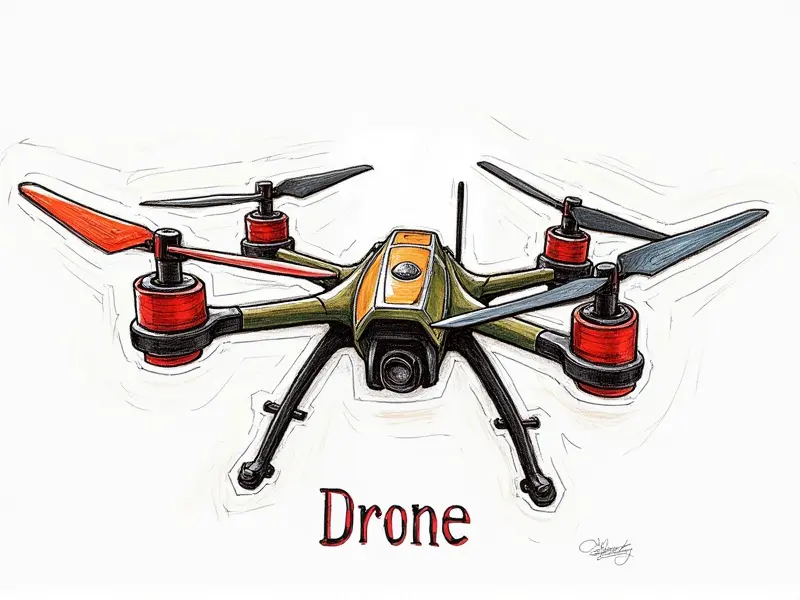Do drones have GPS?

Understanding Drone GPS Technology
Drones, also known as unmanned aerial vehicles (UAVs), have become increasingly popular in recent years due to their versatility and advanced technological features. One of the most crucial technologies that enable drones to perform various tasks efficiently is Global Positioning System (GPS). GPS technology provides drones with accurate location data, enabling them to navigate autonomously and execute complex missions.
The Role of GPS in Modern Drones
Modern drones rely heavily on GPS for navigation, positioning, and flight control. GPS helps drones maintain their position relative to the ground or other objects, which is essential for aerial photography, videography, surveying, mapping, and inspection tasks. Additionally, GPS enables drones to follow predefined flight paths and waypoints with precision.
Benefits of GPS for Drone Pilots
- Precision: GPS ensures that drones can maintain their position accurately, which is crucial for applications like real estate photography or land surveying.
- Safety: By providing accurate location data, GPS helps prevent collisions with obstacles and other aircraft.
- Autonomy: Advanced GPS functions allow drones to operate autonomously, reducing the workload on pilots and enabling them to focus on mission planning and execution.
Do FPV Racing Drones Have GPS?
First-person view (FPV) racing drones typically do not have built-in GPS modules due to their size, weight, and performance requirements. However, some high-end FPV racing drones may incorporate GPS technology for waypoint navigation or obstacle avoidance when used in specific scenarios.
Can Drones Fly Without GPS?
While many modern drones rely on GPS for accurate positioning and navigation, there are still several models that can operate without it. These drones often use alternative methods such as visual inertial odometry (VIO) or magnetometer-based orientation sensing to maintain stability and control during flight.
Exploring GPS Functionality in Quadcopters
Quadcopters, a type of multirotor drone commonly used for aerial photography and videography, benefit greatly from GPS technology. GPS enables quadcopters to hold position while the pilot maneuvers the camera or focuses on capturing high-quality footage.
Advanced GPS Functions for RC Helicopters
Remote-controlled (RC) helicopters can also utilize advanced GPS functions such as return-to-home (RTH), waypoint navigation, and automatic takeoff and landing. These features enhance safety and operational efficiency while reducing the pilot's workload.
What is Drone GPS Lock?
GPS lock refers to a drone successfully acquiring satellite signals from multiple GPS satellites, allowing it to determine its precise location in real-time. Achieving GPS lock is essential for accurate navigation and positioning during flight operations.
How Accurate is Drone GPS?
The accuracy of drone GPS varies depending on factors such as the quality of the GPS module, satellite visibility, and environmental conditions. Generally, consumer-grade drones can achieve a horizontal position accuracy of around 1 to 5 meters, while professional-grade drones may offer sub-meter precision.
Navigating with Drone GPS Technology
Drone pilots use GPS technology for various navigation tasks such as following predefined flight paths, avoiding obstacles, and maintaining altitude. Advanced features like geo-fencing and no-fly zones further enhance the safety and efficiency of drone operations.
Understanding Drone Autopilot with GPS
Drones equipped with GPS-based autopilot systems can perform complex missions autonomously by following predefined flight plans or reacting to environmental conditions in real-time. These systems enable drones to execute tasks such as crop monitoring, infrastructure inspection, and aerial surveying with minimal human intervention.
Conclusion
In conclusion, GPS technology plays a vital role in modern drone operations, providing accurate positioning, navigation, and flight control capabilities that enhance the performance of various applications. While not all drones rely on GPS (such as FPV racing drones), many benefit from its advanced features like return-to-home, waypoint navigation, and autonomous flight modes. Understanding how to effectively utilize GPS technology can significantly improve drone pilots' efficiency and safety during operations.

